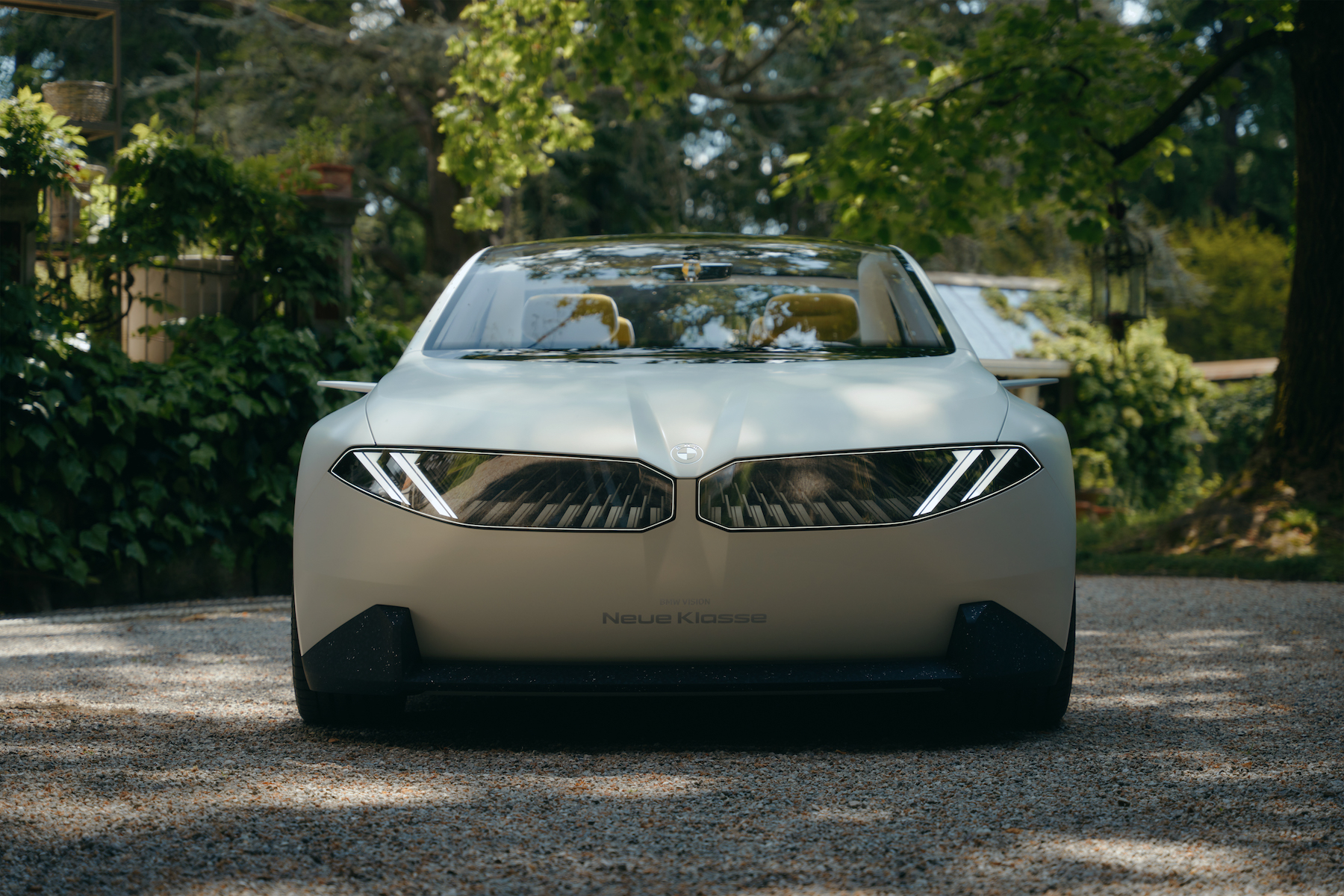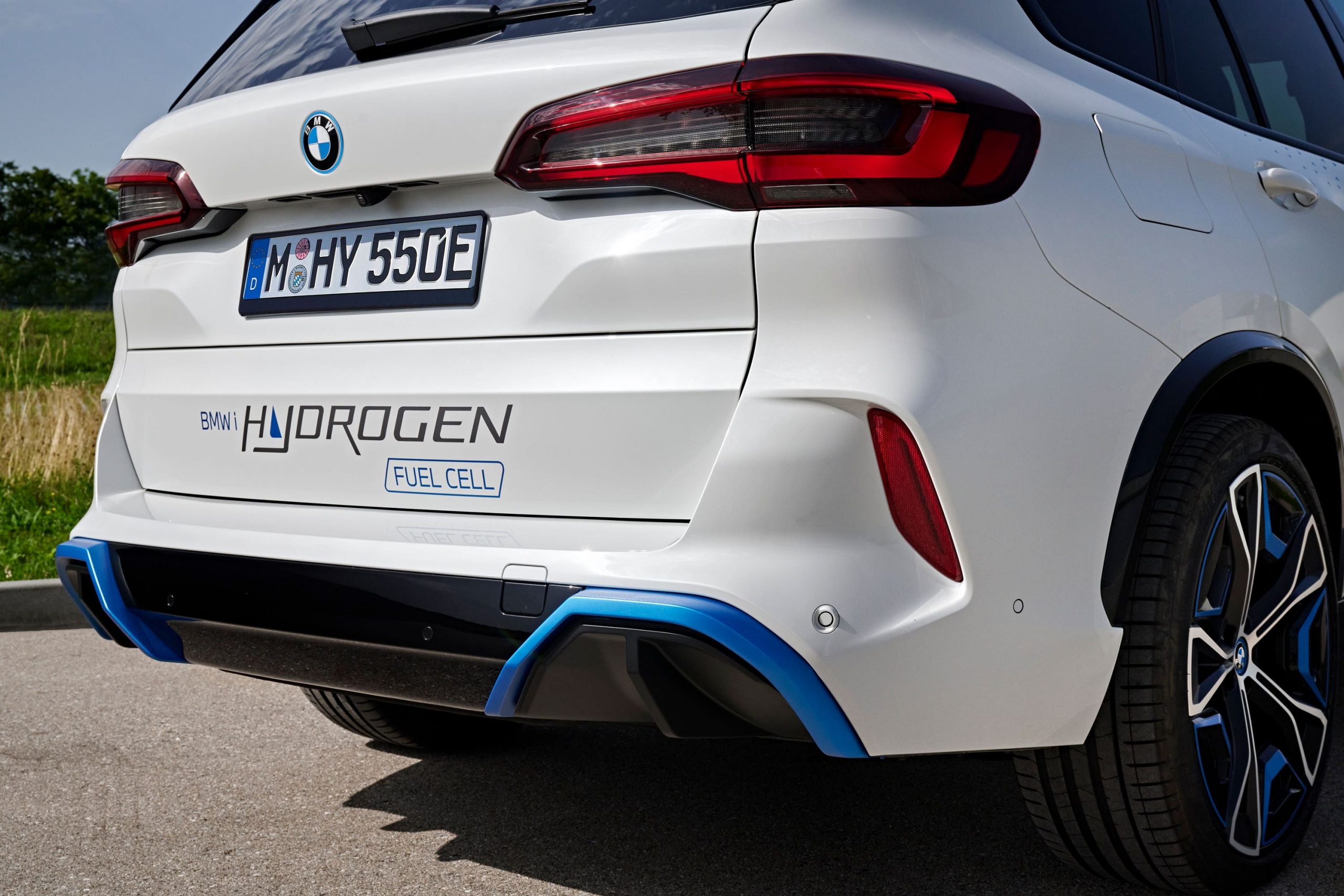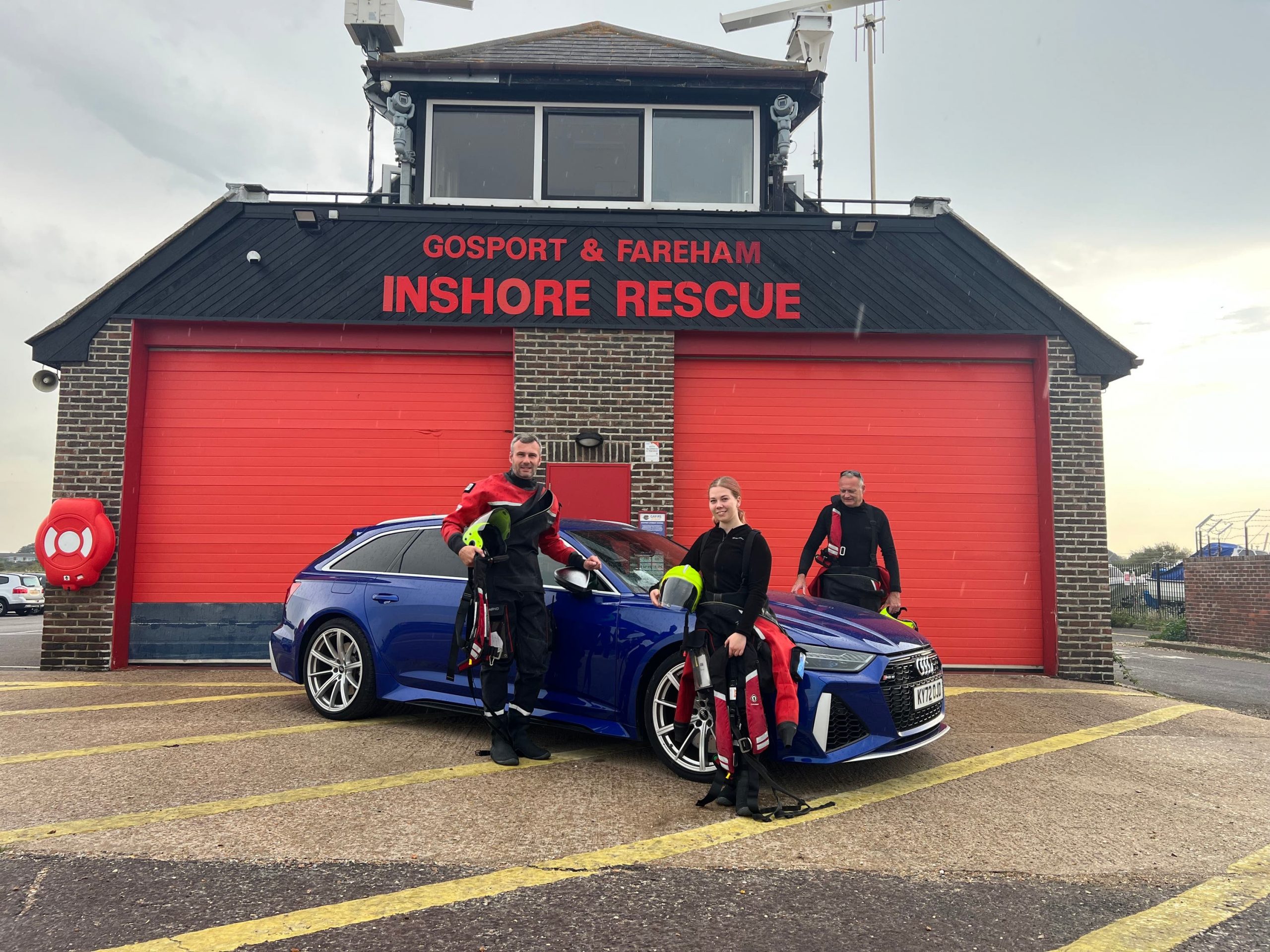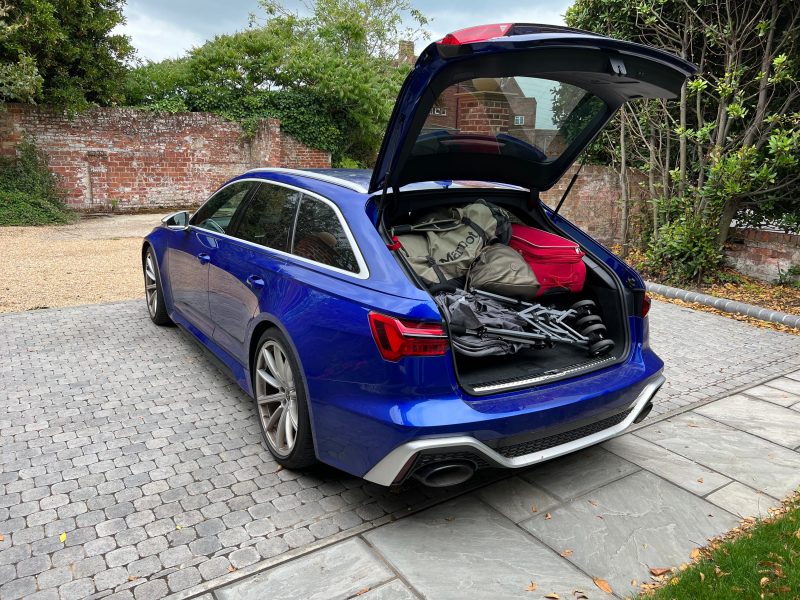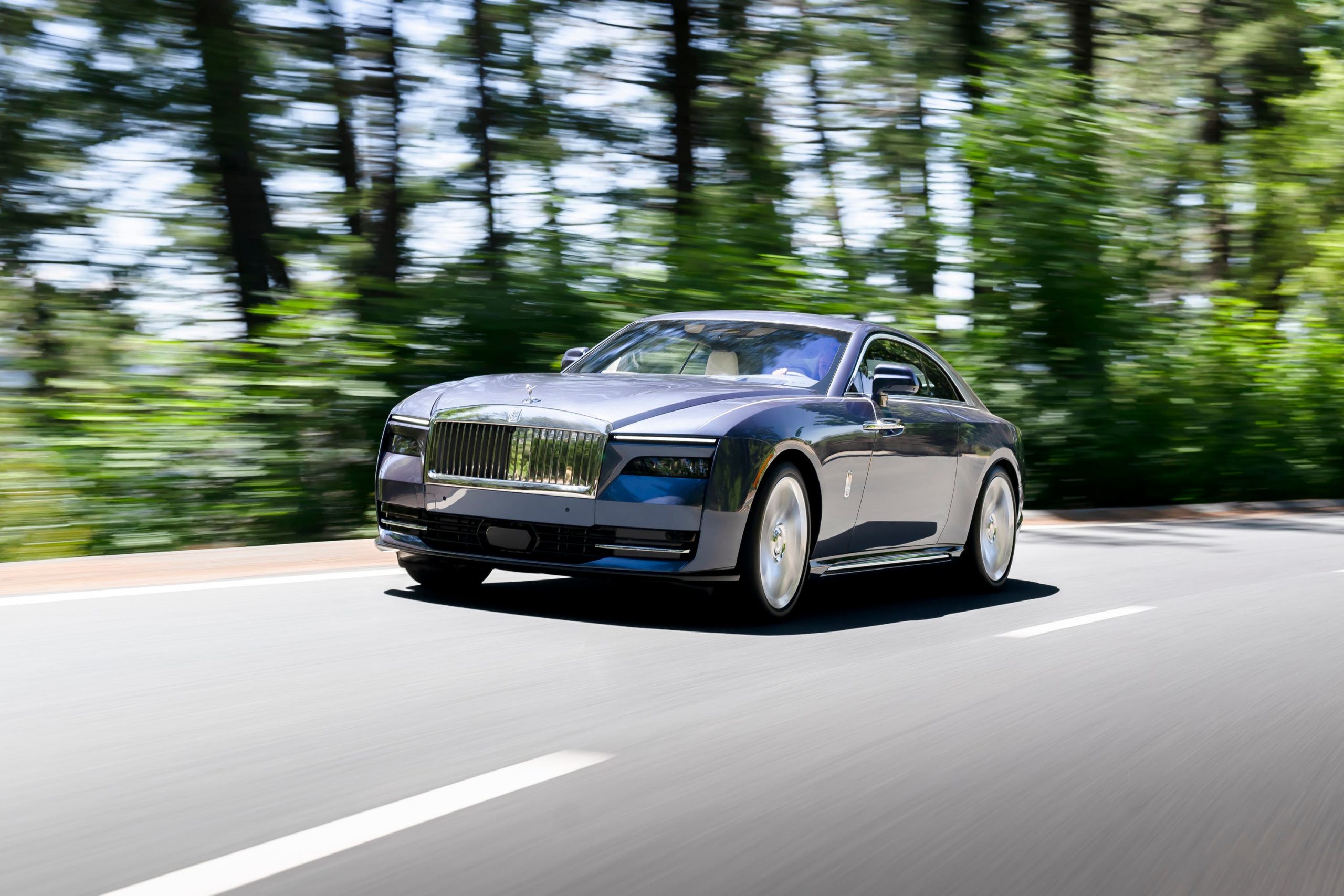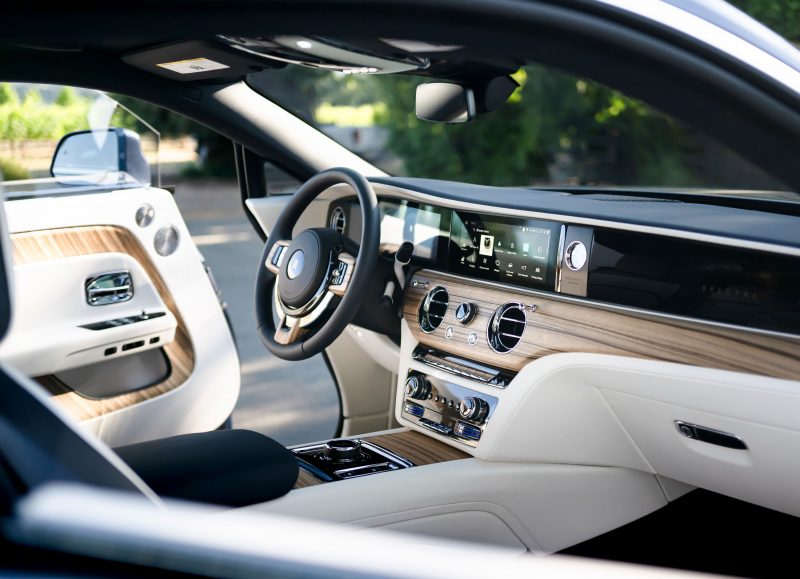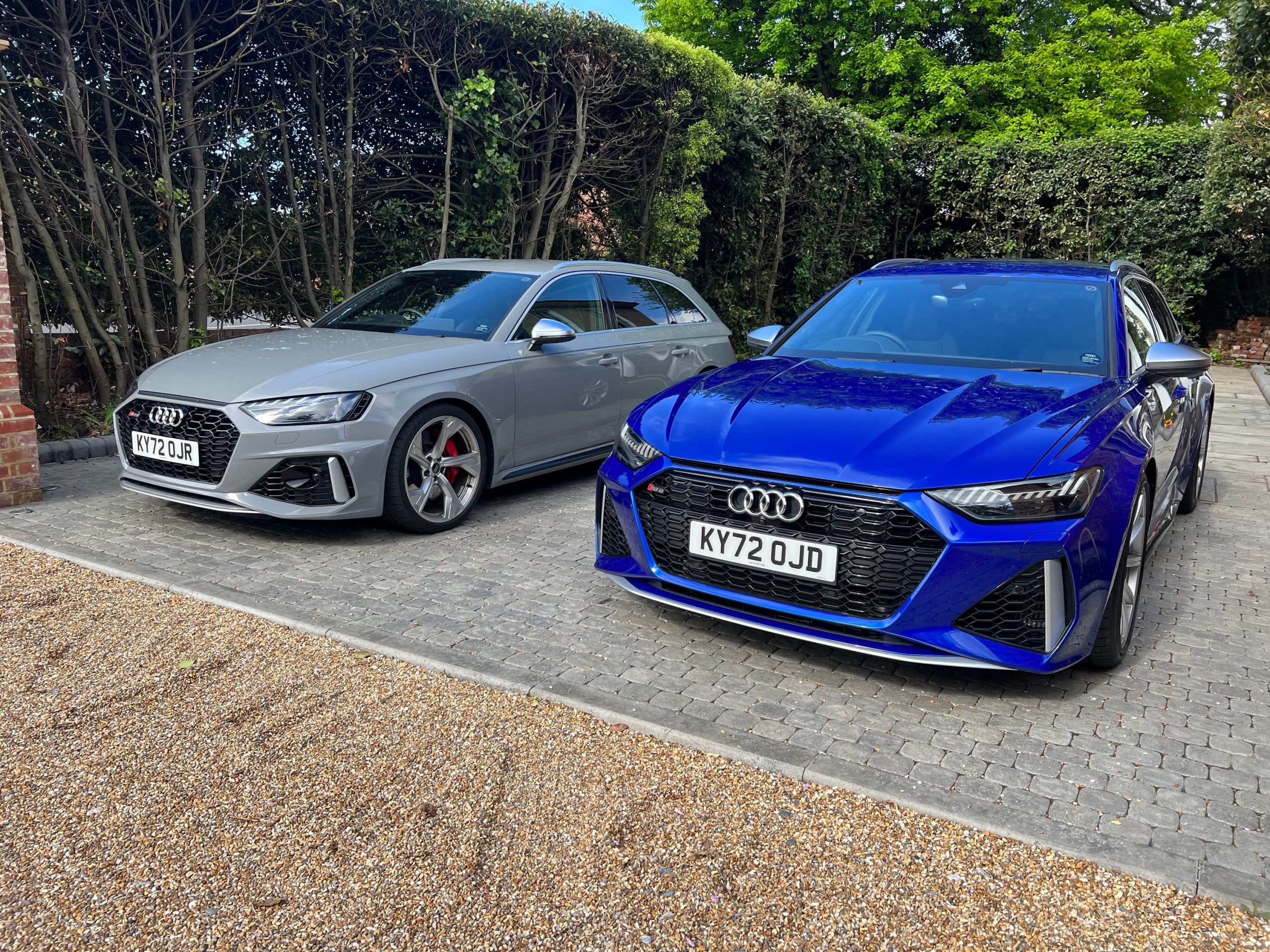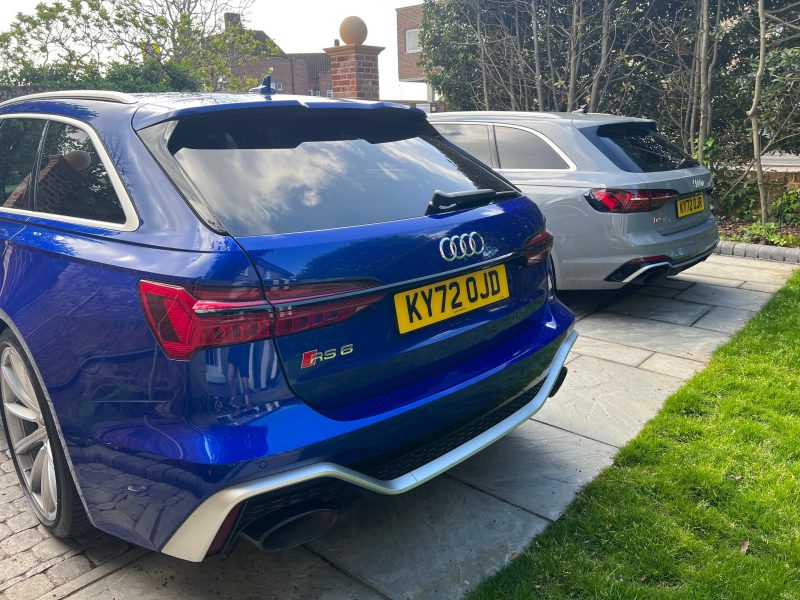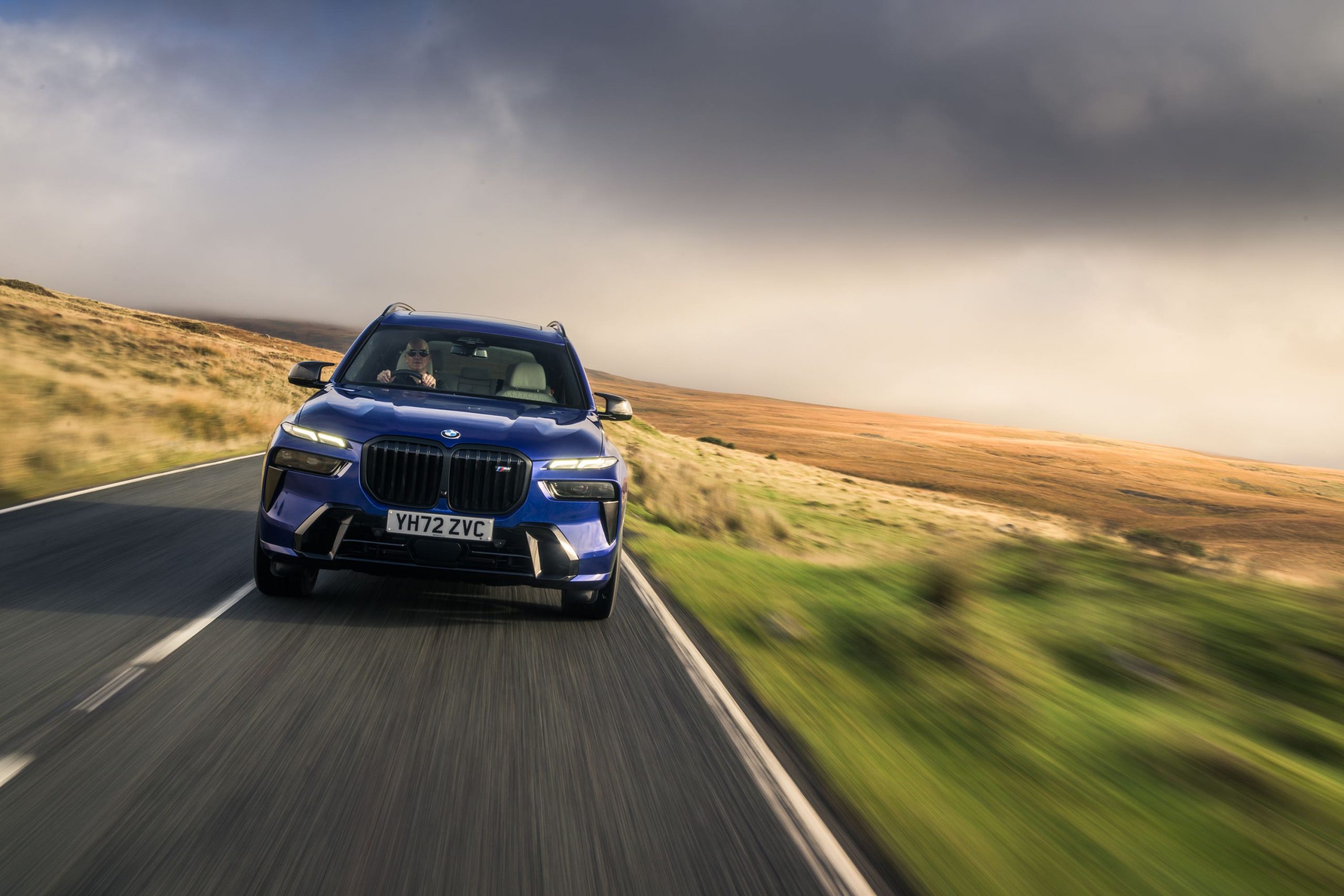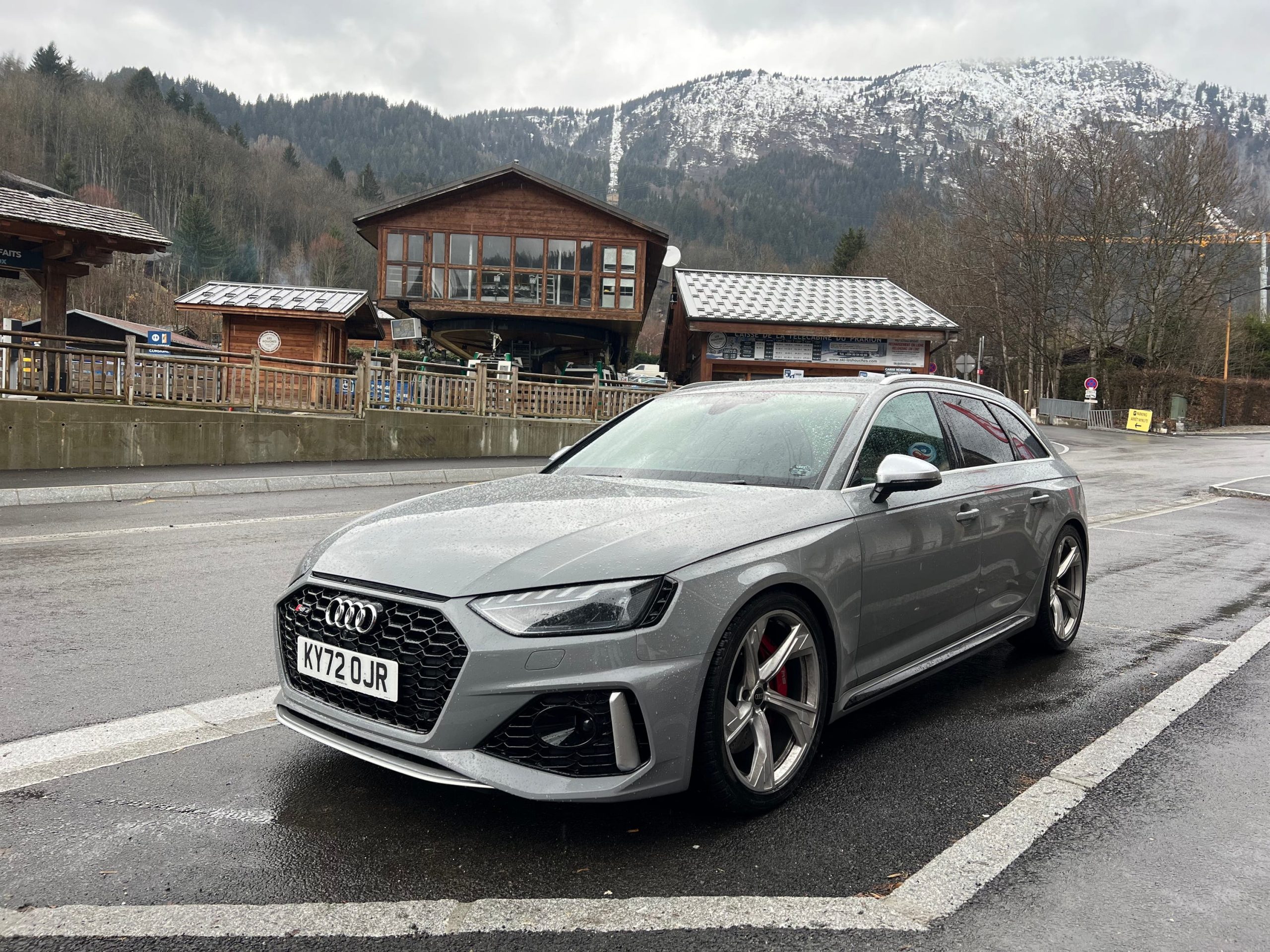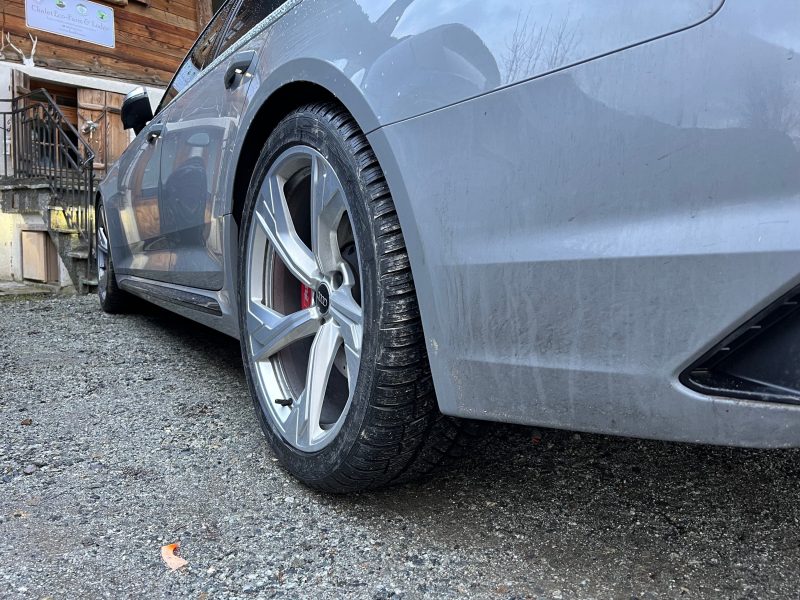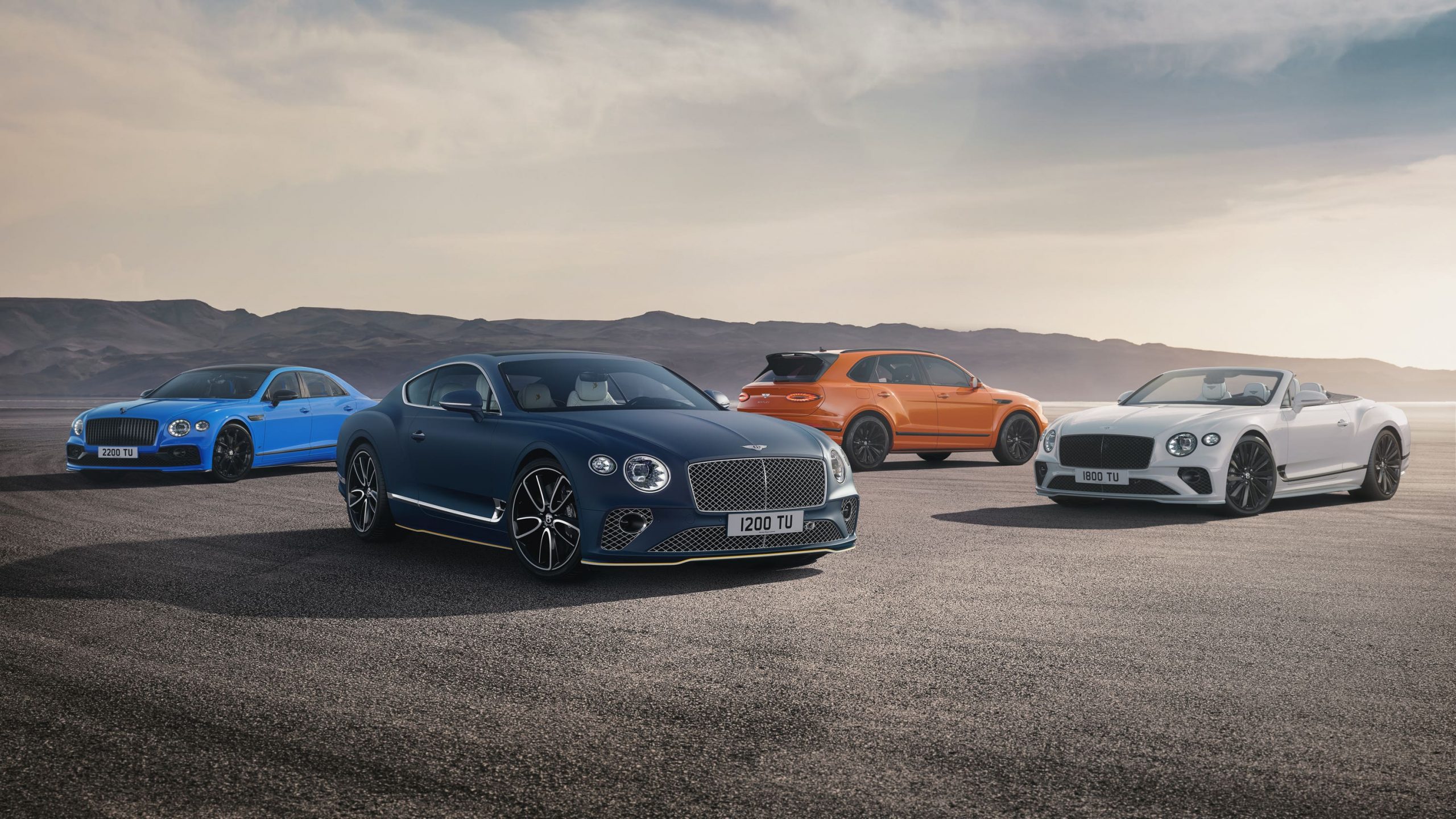The M60i brings extra performance to the super-sized X7. James Baggott has been behind the wheel to see what it’s like.
What is it?
Meet BMW’s largest off-roader – now with added punch: The BMW X7 M60i. This is the German firm’s ultra-luxury SUV and is designed with well-heeled families in mind. It has acres of space for family transportation with two pop-up rear seats hidden in the boot floor and a sumptuous second row with so much leg space the toddlers will struggle to kick the back of your chair.
The huge SUV joined the BMW line-up in 2019 and was given a mid-life facelift at the end of last year with an updated front end and mild hybrid engines. It’s best to think of the X7 as the off-road version of the firm’s 7 Series bringing luxurious touches to off-road chic.
What’s new?
The X7’s refresh was relatively mild with most of the attention focused on the whopping kidney grille at the front. New daytime running lights and adaptive LED headlights were added, and at the back, the lights got a new look too.
Inside the curved display is focused towards the driver and showcases a huge amount of information. It also benefits from hand gesture controls, letting you turn the volume of the music up with a twizzle of your finger. However, this is more a passenger pleaser than actually of any use but is fun to use nonetheless.
What’s under the bonnet?
This review focuses on the top-of-the-range model: The M60i xDrive. This has an impressive 530bhp and 750Nm of torque available from its 4.4-litre V8 petrol. That’s enough to propel it to 60mph in just 4.7 seconds.
For our test drive, we travelled across France to the Alps in a 1,500-mile round trip. The engine was remarkably smooth and relaxing for the duration with spades of power in reserve when it was needed. While big V8s might be fast becoming a thing of the past, there’s a lot to be said for the silky smooth power delivery they can serve up.
Fuel economy for the trip was impressive too. Officially it will do 21.2mpg on the combined cycle, but we got closer to 30mpg thanks to long stretches of motorway miles. It helps that all engines now come with 48V mild hybrid technology which assists the engine to improve efficiency at higher speeds and can even drive the car electrically at very low speeds. The energy is created by braking regeneration and stored in a battery in the engine compartment.
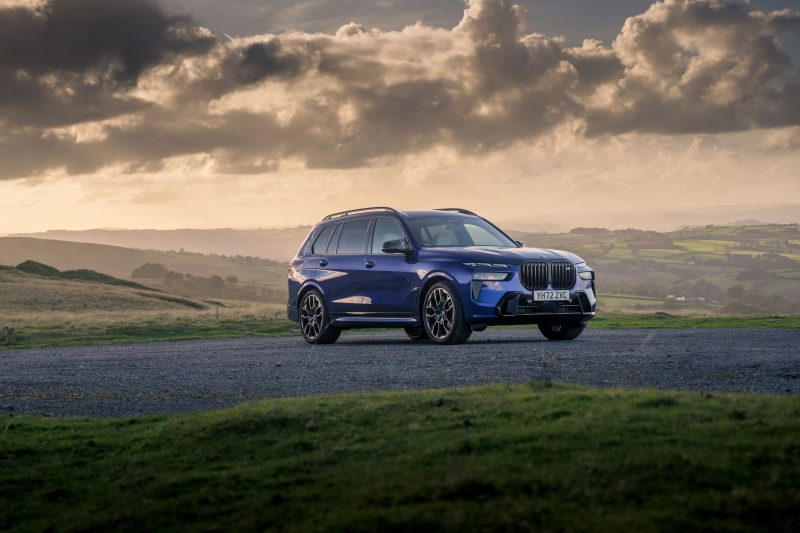
What’s it like to drive?
Over the huge distances we covered during our test, the X7 was incredibly relaxing to drive. Despite its huge size, the road and wind noise was noticeable by its absence and the way the big SUV rides means we jumped out at the end of our 13-hour drive reasonably fresh. The adaptive air suspension certainly helped.
It’s surprising how quickly you get used to the sheer size of the car and the clever parking cameras and sensors make it pretty easy to slot into parking spaces. We had a few issues with the radar cruise control on our trip, though, as it stopped working a number of times.
How does it look?
With the two extra seats in the rear boot floor – which rise and lower electronically at the touch of a button – the X7 is noticeably longer than its X5 little brother. But, despite this extra length, the proportions are still pleasing to the eye. The huge front grille won’t be to everyone’s tastes, though, but in the M Sport spec of our test car, it certainly looked menacing.
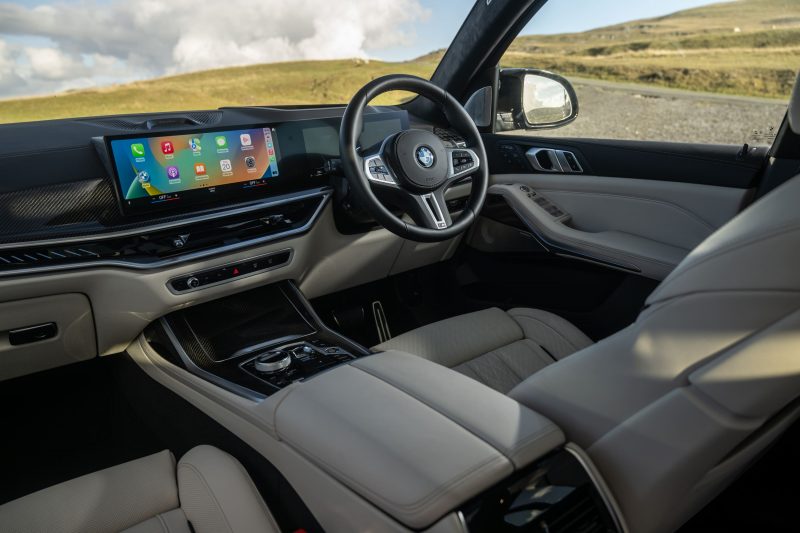
What’s it like inside?
There’s no doubt this is a luxurious SUV that could easily rival cars costing considerably more. We’d suggest it would give the likes of the new Range Rover and even a Bentley Bentayga a run for their money.
The new curved screen is wonderful to use and offers a huge expanse of space to display information. The 12.3-inch screen behind the steering wheel offers clever touches like augmented navigation directions that overlay arrows over a live video feed of the road ahead while the 14.9-inch control display is easy to manipulate.
The display and the software take a little bit of getting used to, though – but this is no complicated iDrive of old, which used to frustrate owners. The new version simply has so many screens and functions that it can take time to work out where things are.
We did find the button for the massaging seats, though, which offered heating, cooling and a variety of different back kneading modes.
What’s the spec like?
Our test model had the Comfort and Ultimate packs added. The first offers heated and cooled cup holders (very useful) as well as heated front and rear seats for £3,750. The Ultimate Pack (£11,000) adds extras including those aforementioned massaging seats, rear window blinds, an incredible Bowers & Wilkins sound system and a panoramic glass roof.
The standard specification is high to start with and includes 21-inch alloys, illuminated kidney grille, ambient lighting and metallic paint. Inside you get a sports steering wheel, four-zone air con and acoustic glass. Apple CarPlay and a wireless charging tray for your mobile are also included. M Sport specification models, like our test car, get extra badging and some additional design tweaks.
Verdict
There are very few BMW X7s sold every year – less than a thousand, in fact – and that’s a real shame because we think this is a genuine alternative to the likes of a Range Rover. It offers fantastic driver and passenger comfort, is packed with luxurious extras and, with this stonking M60i powerplant, is great fun to drive.
Wafting across France was a pleasure in the handsome SUV and with two children in tow, it coped with all the additional space requirements they demanded with ease. The boot is absolutely humongous, we loved the powered third row of seats that rise out of the floor at a touch of a button and it was very relaxing to drive. If you’re in the market for one of the largest SUVs around, the X7 certainly comes highly recommended.
Facts at a glance
- Model: BMW X7 xDrive60i
- Base price: £82,450Price as tested: £115,615
- Engine: 4.4-litre petrol
- Power: 530bhp
- Torque: 750Nm
- Max speed: 155mph
- 0-60mph: 4.7 seconds
- MPG: 21.2mpg
- Emissions: 277g/km

